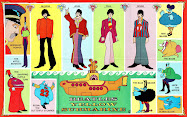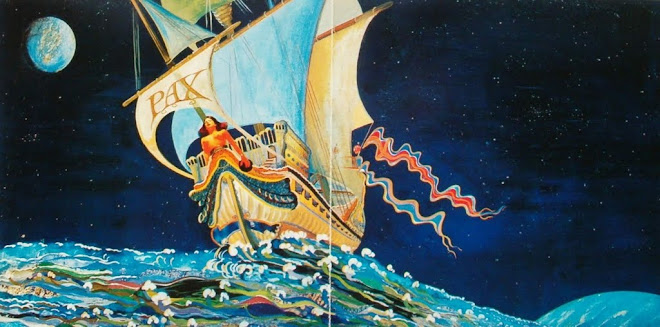Tony Pradlik sells vinyl records from his home in White Plains and on the Internet (www.the-rockin-rex.com) in lieu of a traditional storefront. (Tania Savayan/The Journal News)
 If the refrain that the Internet has killed the music industry sounds like a broken record, consider this: A whole generation has never even heard a record spinning unless a disc jockey's involved.
If the refrain that the Internet has killed the music industry sounds like a broken record, consider this: A whole generation has never even heard a record spinning unless a disc jockey's involved.Yet, the same Internet that slashed so much of the music industry is enabling some local entrepreneurs to continue to profit from a product that might seem counterintuitive: vinyl.
It's not just boomers nostalgic for their youth, either. College kids, collectors, and yes, even those boomers looking for a vintage "Frampton Comes Alive," album are fueling a resurgent interest in LPs.
John Bastone, 49, who ran the Record Room on North Avenue in New Rochelle in the late '80s, and Exile on Main Street in Mount Kisco in the mid-'90s, is one of them.
Within three years of opening the latter store, a Sam Goody branch opened around the corner, and Borders opened directly across the street. Bastone closed the store's doors in about 2004.
However, he and his wife, Margaret, continue to sell CDs and vinyl from their White Plains home. Via their website, recordriots.com, and eBay, Amazon.com and regional record conventions — including one held in May at the New Rochelle Radisson — Exile CDs makes most of its revenue through digital music, but vinyl has helped keep the business afloat.
"It's still a portion of the market," he says. "Even though it's 10 times as popular as it was ... a year ago, it's still a fraction of what it was back in its heyday."
Tony Pradlik can relate. A fellow White Plains resident, Pradlik worked at several record stores — two in Yonkers and another in New York City — before shutting down Rockin' Rex in the '90s. In recent years, he's returned to selling music, but now he's doing it from his house, and on the Internet (www.the-rockin-rex.com), in lieu of a traditional storefront.
The venue has changed, but love for big, round records has not, he says.
"There's always been interest (in vinyl)," Pradlik says. "It's never died."
DJs and hard-core collectors comprise a niche demographic that has sustained the vinyl business for Bastone since the digital revolution. When he visits Purchase College, which he's done eight to 12 times per year for 18 years, students also pay for their penchant for vinyl records — or at least the large album covers that contain them.
"Vinyl outsells CDs when I'm there," he says. "College kids are driving the resurgence of vinyl. I have a theory that kids who live on college campuses (think) 'Why would I spend $5 to $10 on a poster when I can go to a flea market or a yard sale or a street fair and find records for a dollar and just hang up the cover?' ... For them, it wasn't retro. For them, it was something totally brand new."
There's also value in purchasing common vintage vinyl records.
"You can find a lot of $1, $2 and $3 records, and buy a lot more music for a much cheaper price," Bastone adds.
There's also consumer interest in rarities. Pradlik says some vinyl records never made the leap to digital formats due to legal disputes over music rights, musicians dying off, and other reasons.
For both record dealers, the steadiest and most popular vinyl sales are those featuring classic rock acts, including the Beatles, the Rolling Stones and Led Zeppelin, iconic jazz artists, such as Miles Davis and John Coltrane, and soul legends.
"A lot of the DJs and new bands who use old soul records are looking for beats and samples," Bastone says.
Punk records from the '70s and '80s also generate interest among Pradlik's clients.
"That kind of stuff is through the roof now," he says.
The trend has prompted record labels to issue and reissue albums on vinyl, allowing for additional interest and sales.
Bastone has hopes for bringing a record convention to the Westchester County Center, provided the cost isn't prohibitive. He believes the vinyl trend is best buoyed by the experience of listening to a record when the needle hits the groove.
"If you have a brand new piece of vinyl and a brand new CD, the fact is a CD could never sound as good as a record," he says. "And I'm not an audiophile , but any audiophile can tell you that. You get that warm, fuzzy feeling that you're not going to get from ... your iPod or your CD."
Pradlik agrees: "It's about time travel. You can put yourself back in the time this thing was made, even if you weren't from that era."








.jpg)



No comments:
Post a Comment